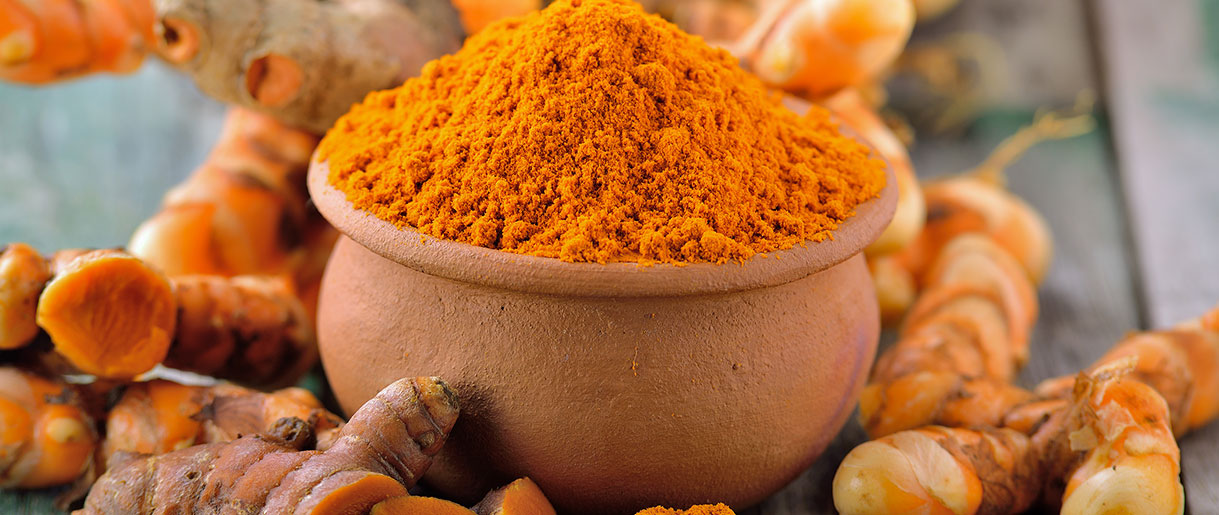Coffee supplements are additives that not only enhance the flavor of your coffee but can also provide additional health benefits. They can come in various forms, including powders, oils, and even infused beans.
Some popular coffee supplements include medicinal mushrooms such as Lion's Mane, Reishi, and Chaga, known for their immune-boosting properties and potential cognitive benefits. Other common coffee supplements are herbs like ginseng for energy, turmeric for its anti-inflammatory properties, and cinnamon for blood sugar control.
Other supplements to add to coffee include coconut oil, cacao, ghee, collagen, protein powder, cinnamon, cardamom, maca, ginger, and cayenne pepper. These healthy supplements for your espresso, cappuccino, or Caffè Americano, support the body's nutrient intake, increase energy levels, and improve weight management and athletic performance.
Coffee is already fantastic with its abundance of caffeine that wakes you up after a night of deep sleep and antioxidants that fight oxidative stress. Nevertheless, there are moments when you crave to extract a little extra from your daily dose—you can achieve this with the right coffee supplements.
However, before adding any new supplements to your diet, it's recommended to consult with a healthcare professional to ensure they're safe for you. This guide on supplements to take with coffee will show you how to boost the benefits you get from your cup of hot or iced coffee.
The Rise of Coffee as a Health Drink

The Origins of Our Beloved Morning Cup
Coffee's journey began in Ethiopia around the 11th century when, according to legend, a shepherd noticed that his goats became particularly energetic after consuming the berries of a certain bush. After being shared with local monks, they found that the beans helped them stay alert during their evening prayers, and hence the love for our 'morning cup' of energy was born.
From Classic Black Coffee to Vitamin Coffee: A Major Shift in Coffee Consumption
As the centuries passed, the popularity of coffee spread globally. It was enjoyed in various forms—from a simple black brew to the lattes, espressos, and frappuccinos we know today. However, we've seen a significant shift in coffee consumption in recent years. The new trend is to turn coffee into 'vitamin coffee'—a way to boost energy and provide essential vitamins.
In an era where health consciousness is at an all-time high, coffee has evolved into a beverage that can deliver daily vitamins alongside a caffeine fix. It's no longer just about the bold flavors or the energy boost; it's about maximizing the benefits of that morning cup.Incorporating essential vitamins into coffee gives the body the nutrients to perform optimally throughout the day.
The Trend Towards Health-Conscious Coffee Drinkers
Today's coffee drinkers want more than just a caffeine boost. Instead, they are looking for functional ingredients that contribute to overall wellness. Enter coffee supplements: these products are designed to transform your regular cup of joe into a nutrient-rich drink.
You can add various functional ingredients to your morning cup with coffee supplements. Whether it's immune-supporting medicinal mushrooms or herbs filled with essential vitamins, these additions are changing the coffee game. The demand for such nutritious coffee supplements is rising as people seek ways to combine their love for coffee with their need for a healthy lifestyle.
In this bustling world, where everyone constantly looks for ways to boost energy and maintain health, vitamin coffee provides a convenient, delicious way to get those essential vitamins. It's a trend that looks set to continue as more and more people discover the benefits of nutritious coffee supplements in their morning routine.
15 Best Supplements To Add To Coffee
1. Keto-friendly Coconut Oil

More people are adding coconut oil to their coffee as the keto diet, and the buzz surrounding consuming more fat continues to gain popularity. While it may not replace coffee sweeteners like syrups or cream, coconut oil has a mild sweetness and is rich in MCTs, a saturated fat that our body processes differently from other fats.
MCTs are a good, rapid energy source and are less likely to be stored as fat. Therefore, coconut oil MCTs do not promote weight gain, unlike coffee creamers and other calorie-dense sweeteners used by most people in a hot or iced mug of coffee.
Blend roughly a spoonful of coconut oil into your ground coffee beans drink for a filling beverage that keeps you alert all morning.
Interesting Read: See the health benefits of Cordyceps as an energy source.
2. Ghee To Boost Energy Levels

Ghee, or clarified butter (grass-fed butter), is another fat making it into coffee mugs worldwide. According to research(1), butter from cows fed only grass has up to 500% more conjugated linoleic acid (CLA), a fatty acid that blocks one step in the body's fat storage process.
Therefore, you can fight weight gain by using ghee derived from grass-fed cows as a substitute for butter made from dairy products from cows raised on grains. Using ghee in your latte, macchiato, caffè mocha, decaf, or French press coffee gives you a more nutrient-dense supplement that ensures less fat is deposited.
Interesting Read: Learn about lion's mane weight loss properties that promote your overall wellness.
3. Cacao For Chocolate Lovers

Since cacao powder—a cocoa product—is naturally low in calories and sugar, it is a gift from heaven for chocolate lovers. In addition, antioxidants and essential elements like magnesium, iron, and calcium are abundant in this superfood.
Cacao powder can be used naturally and may have many health benefits, including lowering blood pressure, enhancing mood and brain function, increasing blood flow to the heart and brain, lowering the risk of heart disease and diabetes, and more.
You can also add this particular supplement to your morning percolate coffee cup. Alternatively, you can use Cacao powders as one of the ingredients and dietary supplements in your herbal tea, green tea, black tea, white tea, or oolong tea to boost nutrition, flavors, and health benefits.
4. The Magic Of Medicinal Mushroom Powder

Medicinal mushrooms in your daily cup of morning coffee can give a significant antioxidant boost to your immune system with their anti-inflammatory properties. Additionally, they are abundant in dietary fiber and B vitamins, such as vitamin B5 and vitamin B1 (thiamine), which are beneficial for maintaining brain function.
For instance, a prevalent fungus among athletes, Cordyceps(2), may increase oxygen intake and enhance cellular energy synthesis. Likewise, Lion's mane mushroom(3) may stimulate brain nerve growth factors through a process known as neurogenesis, which can help preserve memory, improve focus, and enhance cognitive function.
Interesting Read: See how Lion's Mane promotes neurogenesis.
Most medicinal mushrooms don't taste great on their own, so mixing these functional ingredients into your cup of coffee is best to enjoy the health benefits. When preparing your morning brew, you can easily make a delicious blend of mushroom coffee by adding a teaspoon of powdered superfoods like Reishi, Lion's Mane, cordyceps, etc. Feel free to adjust your recipes, adding a coffee creamer and spices for a rich flavor and taste.
5. Protein Powder For Muscle Growth

Due to its numerous health advantages, protein powder is one of the most widely used nutritional supplements to add to smoothies, shakes, coffee, oatmeal, and other foods. In addition, it can aid tissue regeneration, hormone and enzyme production, and muscular growth.
Regularly consuming protein powder could help in weight loss as well. For example, if you often take coffee before a workout, add some proteins to your daily caffeine fix with a teaspoon of high-quality protein powder.
Interesting Read: See why more people are using Cordyceps mushrooms pre-workout.
6. Cinnamon: The Natural Sweetener

You do not have to add unhealthy, calorie-dense sweeteners to your cups of coffee. Instead, after you filter your coffee drip, sweeten it with Ceylon or cassia cinnamon before serving and enjoying it.
Ceylon cinnamon enhances flavor, supports healthy joints (eliminating joint pain), maintains healthy blood sugar levels, and is rich in antioxidants called "cinnamaldehydes." Additionally, it promotes normal blood pressure, according to research(4). Twelve ounces of coffee should have roughly half a spoonful of cinnamon added.
Interesting Read: See how Lion's mane mushroom fight hypertension, helping people with high blood pressure avoid long-term cardiovascular diseases.
7. Collagen For Healthy Aging

Collagen(5) is the perfect ingredient to add to your daily coffee, whether you want to encourage healthy aging or make it more filling. Information from research studies has shown that one of the effects of taking a scoop of collagen supplements is minimizing the appearance of wrinkles.
Protein and amino acids in collagen support strong muscles, healthy joints, and healing. Moreover, collagen peptides act as prebiotics, feeding your microbiota to improve gut health. Since collagen powder supplements are frequently unflavored and straightforward to mix, you won't notice them in your coffee as you drink them.
Interesting Read: See how turkey tail mushrooms improve gut health.
8. Maca To Boost Libido

Eight of the nine essential amino acids are abundant in maca root, which contains many trace crucial vitamins like vitamin B6 and over 20 other amino acids. According to studies, maca root may increase libido(6), increase male fertility, and lessen painful menopause symptoms.
Take advantage of the possible benefits by adding maca to your daily cup of coffee. It is recommended to take between 1 and 3 teaspoons of maca powder daily—add these teaspoons to your hot cup of espresso or cappuccino and stir. You can make this a daily routine without worrying about side effects.
Interesting Read: See how cordyceps mushroom boosts libido.
9. Turmeric For Digestion

The anti-inflammatory benefits and antioxidant capacity of turmeric, particularly its primary component, curcumin(7), have been extensively researched. This super antioxidant boosts liver detoxification, improves digestion, and may even help with depression treatment.
You probably have seen golden milk prepared using turmeric on social media. You can also add some turmeric to your coffee drinks to benefit from vitamin C, minerals, and an extra boost in digestion.
10. Ginger For Beating Pain

Due to its abundant antioxidants like gingerol and possible anti-inflammatory qualities, ginger is an excellent additive to vitamin coffee. Therefore, the spice needs to be given more credit as a superfood, and studies show it may help with digestion, menstruation pain, arthritis pain, and muscle pain(8).
11. Cardamom For Fighting Chronic Illnesses

Cardamom's diuretic and antioxidant(9) characteristics may help control blood sugar levels, lower cholesterol levels, kill some types of cancer cells, lower blood pressure, and reduce inflammation. In addition, vital vitamins and minerals such as iron, potassium, phosphorus, calcium, and magnesium may all be found in cardamom.
Interesting Read: See the best mushrooms for diabetes and blood sugar control.
12. Cayenne Pepper To Boost Your Metabolism

Cayenne pepper is a superfood powerhouse, yet it is not for the faint of heart. However, research suggests it may increase metabolism and reduce blood pressure(10). Add a pinch of cayenne to make your roast coffee grounds easier to blend before brewing.
13. Ashwagandha for Fighting Coffee-Induced Jitters

Coffee beans are associated with jitters and anxiety, whether in a latte, macchiato, cappuccino, espresso, or americano. However, you can avoid these side effects of coffee by adding ashwagandha to your cup of coffee. Ashwagandha reduces cortisol levels, a hormone associated with stress, and may help alleviate symptoms of anxiety and depression.
Additionally, ashwagandha may improve cognitive function and memory and protect against neurodegenerative diseases like Alzheimer's. Furthermore, its anti-inflammatory properties may help reduce inflammation and be particularly useful for people with arthritis.
Ashwagandha may increase testosterone levels in men, which can help improve fertility and increase muscle mass and strength. Furthermore, it may also help reduce cholesterol and blood sugar levels, which can benefit people with diabetes or heart disease.
14. Coconut Milk to Boost The Health of Your Bones

A coconut milk latte, espresso, or cappuccino will be rich in medium-chain triglycerides (MCT), improving cholesterol levels and reducing heart disease risk. Additionally, MCTs in coconut milk can aid in weight loss by increasing metabolism and reducing appetite.
Furthermore, coconut milk contains lauric acid, which has antimicrobial properties that may help improve gut health and reduce the risk of digestive infections. It is also a good source of calcium and magnesium, essential minerals for strong bones.The healthy fats and nutrients in coconut milk may also help improve skin and hair health, moisturize skin, and reduce inflammation.
15. Almond Milk for Skin Health

Almond milk is low in saturated fat and cholesterol, which can reduce the risk of heart disease. Its high content of unsaturated fats, like omega-3 fatty acids, can also help lower cholesterol levels. Additionally, almond milk is a good source of calcium and is often fortified with vitamin D, essential for strong bones and teeth.
Furthermore, an Americano coffee, french press coffee, or mocha with almond milk contains vitamin E, an antioxidant that can help protect skin from damage and maintain skin health.
Interesting Read: See how Chaga mushroom boosts skin health.
Unleashing the Barista Within: DIY Coffee Recipes with Supplements

Instead of getting a cup from the coffee shop, making nutritious coffee at home is a delightful and healthy way to start your day. Not only can you tailor the ingredients to fit your taste preferences, but you can also add specific supplements that align with your health goals. Here, we will delve into step-by-step recipes incorporating medicinal mushrooms and herbs, transforming your average morning brew into a nutrient-rich powerhouse.
Mushroom Coffee
Ingredients:
- 1 cup of freshly brewed coffee
- 1/2 teaspoon of mushroom powder (e.g., Lion's Mane or Reishi)
Steps:
1. Brew your coffee as usual.
2. Stir in the mushroom powder until it is fully dissolved.
3. Enjoy your mushroom coffee hot, savoring the added earthy flavors.
Herbal Spiced Coffee
Ingredients:
- 1 cup of freshly brewed coffee
- 1/4 teaspoon of turmeric
- 1/4 teaspoon of cinnamon
- A pinch of black pepper (to boost the absorption of turmeric)
Steps:
1. Brew your coffee as per your liking.
2. Stir in the turmeric, cinnamon, and black pepper until thoroughly mixed.
3. Sip and appreciate the warm, spiced notes in your coffee.
Remember, you can always adjust the amount of mushroom powder or herbs based on your preference. Start small and gradually increase until you find the right balance that suits your taste.
Customizing Your Coffee Recipes for Your Health Goals
While the above recipes are a great starting point, the real beauty of DIY coffee recipes is the ability to customize them based on personal taste and health goals. For example, consider adding more medicinal mushroom powder or trying different types of mushrooms to boost your immune system. On the other hand, if you aim to reduce inflammation, herbs like turmeric and ginger can be your allies.
You could also add other health-boosting ingredients like MCT oil for a cognitive boost or a scoop of collagen powder for joint and skin health. Remember, however, to consult with a healthcare professional to ensure these supplements align with your health needs.
Purchasing Guide: Ready-Made Coffee Supplements

Navigating the World of Commercially Available Coffee Supplements
The market is brimming with ready-made coffee supplements in today's health-conscious era. These are designed to offer an effortless way to make your coffee more nutritious without additional preparation. They come in various forms, such as infused coffee beans, powders that can be stirred into your brew, and even capsules that can be taken alongside your coffee.
These ready-made coffee supplements can include various ingredients, from medicinal mushrooms and herbs to vitamins and other functional ingredients. Each one offers unique benefits, allowing you to choose a supplement that aligns with your health goals and taste preferences.
Factors to Consider When Choosing Coffee Supplements
Ingredient Quality
The quality of the ingredients in your coffee supplement is paramount. Look for supplements that use natural, organic, and non-GMO ingredients. Also, check if any additives or preservatives are used, as these could diminish the supplement's health benefits.
Taste
As much as a coffee supplement may be healthy, you're less likely to stick with it if it doesn't taste good. So consider your taste preferences and read reviews to see what other consumers say about the taste.
Brand Reputation
Do your research on the brand. Look for companies that are transparent about their sourcing and manufacturing processes. You might also want to check if the brand has organic or Fair Trade certifications.
Your Health Goals
Different supplements cater to different health needs. For instance, if you're looking to boost your immune system, a supplement with medicinal mushrooms might be ideal. On the other hand, if you're aiming for better digestion, a probiotic supplement could be more suitable.
Safety Considerations and Consultation with Health Professionals

Consulting Health Professionals: An Essential First Step
Before embarking on your journey with coffee supplements, it's crucial to consult with a healthcare professional. While coffee supplements offer numerous benefits, they might not suit everyone. A healthcare professional can provide personalized advice based on your current health status, existing medication, and specific nutritional needs.
Side Effects and Interactions of Medicinal Mushrooms and Herbs
While medicinal mushrooms and herbs are generally safe for most people, they can occasionally cause side effects or interact with certain medications. For instance, some medicinal mushrooms may cause digestive upset, allergies, or dry mouth in some individuals. In addition, herbs like turmeric can thin the blood and should be used cautiously if you're on blood-thinning medication.
It's essential to start with a small dose when introducing any new supplement to your diet, gradually increasing as your body adapts. Also, stop using the supplement and seek medical advice if you experience any adverse effects.
Tips for Safe and Beneficial Use of Coffee Supplements
Do Your Research
Be sure to thoroughly research any supplement before incorporating it into your routine. Check for any potential side effects, interactions, and contraindications.
Start Small and Listen to Your Body
Begin with a small supplement dose, and gradually increase as your body adapts. Pay attention to how your body responds to the supplement. If you notice any discomfort or adverse effects, stop using the supplement and consult with a healthcare professional.
Maintain a Balanced Diet
Coffee supplements should not be used as a substitute for a balanced, varied diet. They are meant to complement your diet, not replace healthy foods.
FAQs About Coffee Supplements
Does Coffee Destroy Vitamin D?
Some evidence suggests that excessive coffee consumption may interfere with the body's ability to absorb vitamin D.However, the research is inconclusive, and the impact of coffee consumption on vitamin D levels may vary depending on age, gender, and overall diet.
Some studies have suggested drinking more than three cups of coffee daily may lower vitamin D levels. This is because coffee contains polyphenols, which can bind to vitamin D and prevent it from being absorbed by the body. However, other studies have found no significant impact of coffee consumption on vitamin D levels.
Generally, moderate coffee consumption is unlikely to impact vitamin D levels significantly. However, if you are concerned about your vitamin D levels, adding supplements high in vitamin D to your coffee is essential.
What Can Give Me Energy Like Coffee?
If you're looking for a natural way to boost your energy levels without consuming coffee, several supplements may help. Cordyceps mushrooms can increase energy levels and reduce fatigue. Cordyceps contains adenosine, which helps the body produce ATP (adenosine triphosphate), a molecule that provides energy to cells. Cordyceps may also improve oxygen uptake and utilization in the body, leading to improved physical performance.
Ginseng improves energy levels by reducing inflammation and oxidative stress in the body. It may also enhance mental clarity and concentration, making it a popular supplement for students and professionals. Ashwagandha may also help increase energy levels and improve physical performance. It works by increasing the body's production of ATP, leading to improved energy levels.
Interesting Read: See the best morning energy drinks.
What Is The Healthiest Caffeine Option?
Caffeine is a popular stimulant found in various beverages and foods, and choosing the healthiest caffeine option can benefit overall health. Among the healthiest caffeine options are coffee, tea, yerba mate, and dark chocolate.
Coffee is a popular source of caffeine that can have health benefits when consumed in moderation. Tea, mainly green tea, is rich in antioxidants and has numerous health benefits, such as reducing the risk of heart disease and certain types of cancer.
Yerba mate is a traditional South American drink that is high in antioxidants and has been shown to have anti-inflammatory properties. Dark chocolate is another tasty way to boost caffeine while providing antioxidants and other beneficial compounds.
Interesting Read: See the best foods that wake you up.
Key Takeaways
Coffee on its own may help you wake up. However, with supplements like functional mushrooms, ghee, cacao, maca, ginger, turmeric, and others, coffee becomes a drink that boosts your immunity, fights oxidative stress, reduces the risk of diabetes, and even helps with weight loss.
Choose the perfect coffee supplements from our list above and give them time to build up in your system. Regularly taking coffee supplements is the best way to load your morning cup with health benefits, making it extra special.
Do you add supplements to your coffee? Which supplements do you usually add? Let us know in the comments.
References
- Conjugated linoleic acid content of milk from cows fed different diets, (1)https://pubmed.ncbi.nlm.nih.gov/10531600/
- Enhancement of ATP generation capacity, antioxidant activity and immunomodulatory activities by Chinese Yang and Yin tonifying herbs, (2)https://www.ncbi.nlm.nih.gov/pmc/articles/PMC1847515/
- Nerve growth factor-inducing activity of Hericium erinaceus in 1321N1 human astrocytoma cells, (3)https://pubmed.ncbi.nlm.nih.gov/18758067/
- Glycated haemoglobin and blood pressure-lowering effect of cinnamon in multi-ethnic Type 2 diabetic patients in the UK: a randomized, placebo-controlled, double-blind clinical trial, (4)https://pubmed.ncbi.nlm.nih.gov/20854384/
- Oral intake of specific bioactive collagen peptides reduces skin wrinkles and increases dermal matrix synthesis, (5)https://pubmed.ncbi.nlm.nih.gov/24401291/
- Effect of Lepidium meyenii (MACA) on sexual desire and its absent relationship with serum testosterone levels in adult healthy men, (6)https://pubmed.ncbi.nlm.nih.gov/12472620/
- Therapeutic Roles of Curcumin: Lessons Learned from Clinical Trials, (7)https://www.ncbi.nlm.nih.gov/pmc/articles/PMC3535097/
- Ginger (Zingiber officinale) reduces muscle pain caused by eccentric exercise, (8)https://pubmed.ncbi.nlm.nih.gov/20418184/
- Anti-inflammatory and anti-oxidant effects of Cardamom (Elettaria repens (Sonn.) Baill) and its phytochemical analysis by 4D GCXGC TOF-MS, (9)https://pubmed.ncbi.nlm.nih.gov/28458157/
- Activation of TRPV1 by dietary capsaicin improves endothelium-dependent vasorelaxation and prevents hypertension, (10)https://pubmed.ncbi.nlm.nih.gov/20674858/










Let Us Know Your Comments